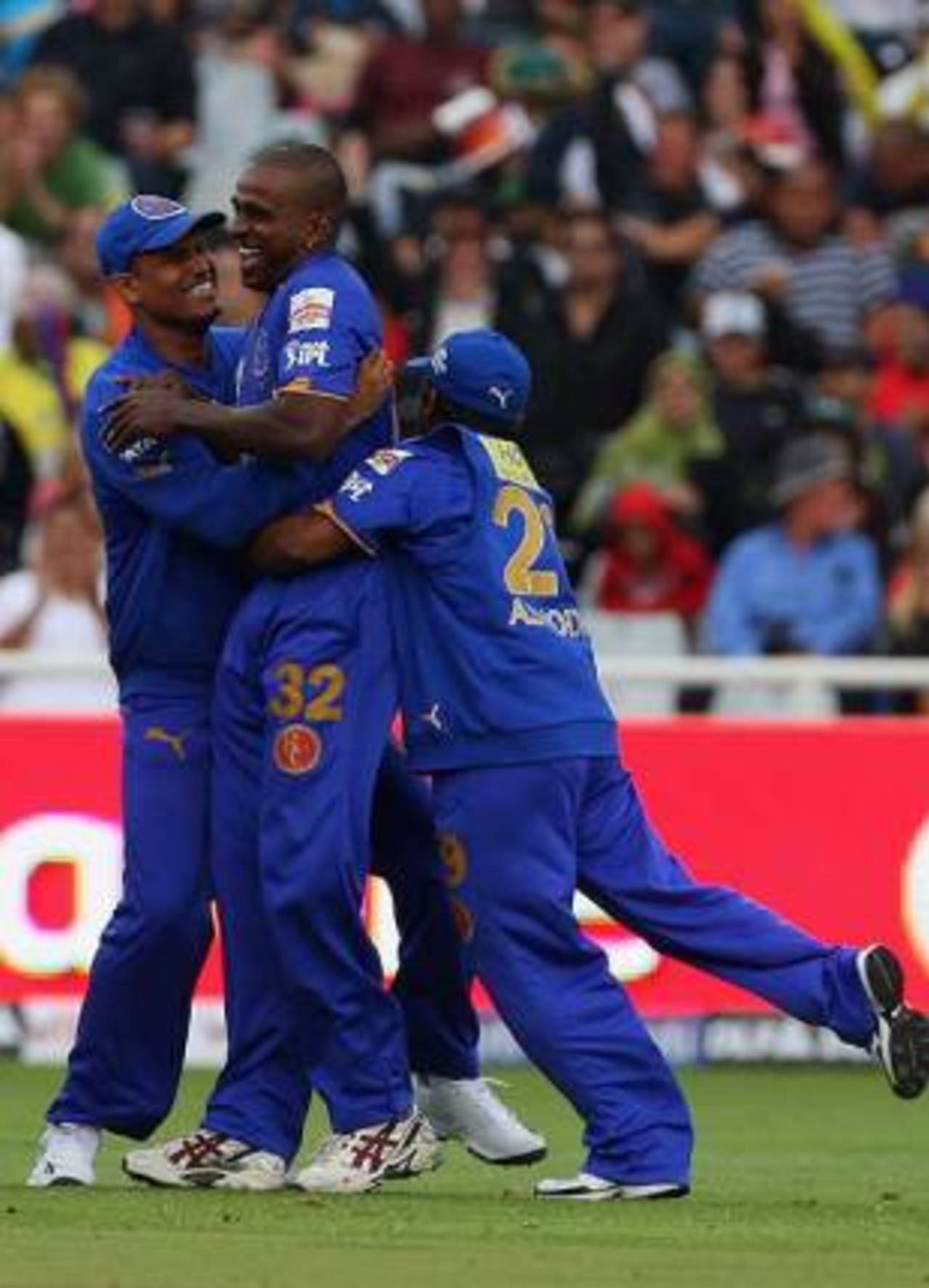A lose-lose for the English
Unlike the people of the Holy Land, who got aqueducts and sanitation from the Romans, the England players have gained little from their IPL sojourn
Lawrence Booth
30-Apr-2009

Dimitri Mascarenhas' spell in the opening game was one of few positives for the English in the IPL • Getty Images
Yes, but what has the IPL done for us? At least the People's Front of Judea in The Life Of Brian ended up having to admit that the Romans had gifted the Holy Land a semblance of an infrastructure. But for Englishmen at the IPL it seems there is no endless list of benefits to rival the aqueducts, the sanitation and the rest.
To say that fortunes have been mixed is to overestimate the significance of Ravi Bopara's excellent 84 off 59 balls for Kings XI Punjab against Bangalore Royal Challengers at Kingsmead on April 24 (I know the details by heart: this was a momentous occasion to rival 1066 and 1966) and Dimitri Mascarenhas' opening-day burst of two wickets in two balls. But apart from Ravi's knock and Dimi's spell, what has the IPL done for us?
When Kevin Pietersen spoke yesterday about the excitement of returning to England to play a Test match at Lord's - "growing up as a kid, you dream about it" - you sensed part of its allure was the fact that it wasn't South Africa. Nothing personal, and we should all have moved on from the tedious traitor storyline by now.
But Pietersen's greatest achievement out here may have been to keep smiling through his own struggles and those of Bangalore, who only won yesterday because they were playing the one team in the league with bigger self-esteem issues. He remains one of the biggest drawcards in the game, and one of the best batsmen, but the harsh reality of the IPL's market economy is that his value has plummeted.
Andrew Flintoff feels long forgotten. Had Chennai Super Kings done their homework properly, they would have realised he is not a No. 4 (his position in the first game) nor is he, with the best will in the world, a Twenty20 bowler either (and he won't be until he develops a decent slower ball). The Fred mythology will doubtless live on, but not among those who watched him closely out here.
Paul Collingwood has only made it onto the field with Delhi Daredevils for brief stints as a high-class 12th man, but must now trust that his game has remained in working order when he goes out to bat at Lord's against Fidel Edwards and chums next week. Graham Napier will have enjoyed the ride, while Mascarenhas has done tolerably well without ever bolstering his stated ambition of captaining England at the Twenty20 World Cup in June (that honour will almost certainly fall to Collingwood).
Then there's Owais Shah. Yesterday, he was dropped by England after only three Tests back in the side, a reflection of some sloppy decision-making in the Caribbean. To make matters worse, he has been less active than even his Delhi team-mate Collingwood, which makes you wonder - with Twenty20 hindsight goggles on, of course - whether he should have come here at all. In effect, he has been paid £100,000 or so to sit on the bench, neither improving his skills under pressure nor making the runs for Middlesex that might, just might, have persuaded the
selectors to give him another go. Money aside, it's been a lose-lose.
English minds are turning towards a Lord's Test, which is always a consolation. But really, what has the IPL done for us?
Lawrence Booth is a cricket correspondent at the Guardian. He writes the acclaimed weekly cricket email The Spin for guardian.co.uk